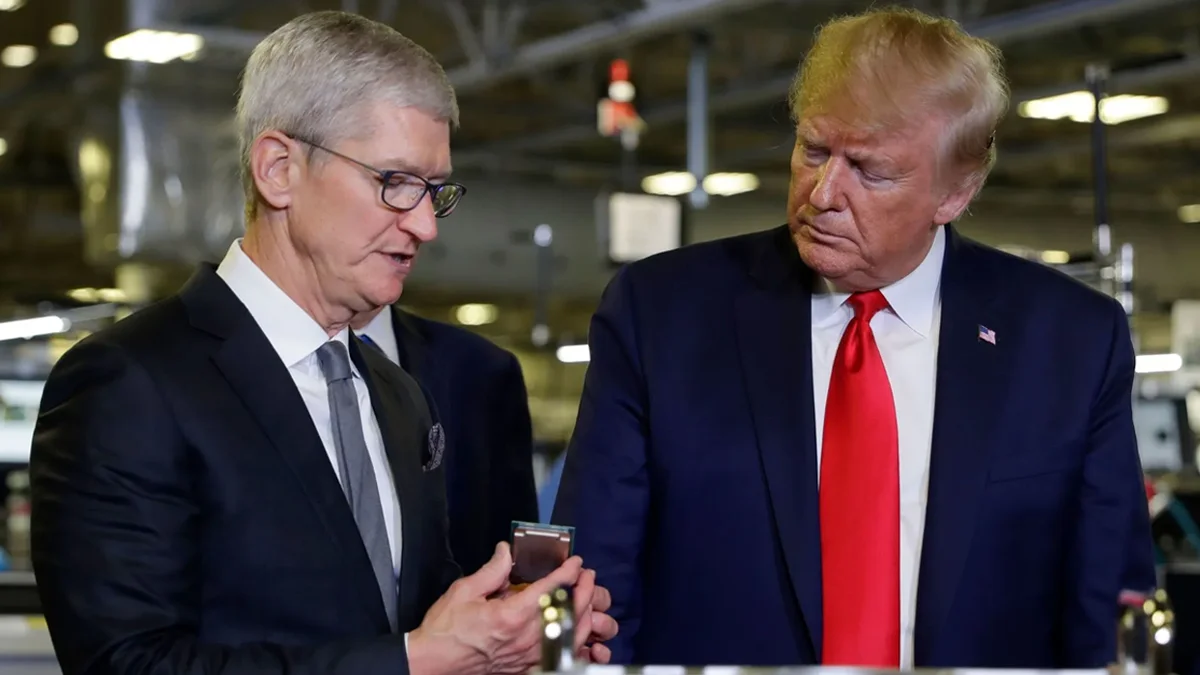Necessary Always Active
Necessary cookies are required to enable the basic features of this site, such as providing secure log-in or adjusting your consent preferences. These cookies do not store any personally identifiable data.
|
||||||
|
||||||
|
||||||
|

US President Donald Trump has asked Apple CEO Tim Cook to stop expanding the company’s manufacturing operations in India and instead focus on increasing production in the United States, as reported by Mint. The meeting took place during Trump’s visit to Doha, where he made it clear he was unhappy with Apple’s rising investment in India.
At a business event in Qatar, President Trump said he had “a little problem with Tim Cook” over Apple’s India expansion. “He is building all over India. I don’t want you building in India. India can take care of themselves,” Trump stated.
The U.S. President stressed that he has treated Apple “very good” and wants the company to further increase its investment at home. “I spoke to Tim Cook this morning… he’s going to even up his numbers… $500 billion. He’s building a lot of plants in the United States,” he said.
This statement has added a new layer to the ongoing U.S.-India tariff talks, as Trump also mentioned that India is one of the highest-tariff nations in the world, making it hard for American products to enter the Indian market.
He also claimed that India recently offered the U.S. a zero-tariff deal. “They have offered us a deal where basically they have agreed to charge us literally no tariffs,” Trump said. Talks between the two countries are reportedly ongoing, with India’s trade minister expected to visit Washington soon.
Over the last few years, Apple’s India expansion has played a major role in its supply chain strategy. In the 12 months through March, Apple assembled iPhones worth $22 billion in India, marking a 60% increase compared to the previous year. This growth reflects the company’s goal to reduce its dependency on China and diversify production.
Apple manufacturing operations in India are currently led by companies like Foxconn and Tata Electronics, which have established large facilities in southern India. Tata has also acquired Wistron’s India business and is now one of Apple’s main partners in the country.
These developments align with India’s ambition to become a global tech manufacturing hub through its “Make in India” campaign. The Indian government has offered multiple incentives to encourage companies like Apple to set up local production, which supports jobs and boosts exports.
According to Bloomberg, Apple plans to continue building its supply chain in India, but Trump’s call to Tim Cook could impact the speed and scale of this expansion.
The latest remarks have sparked a broader discussion about the balance between global manufacturing strategies and domestic political expectations. While Tim Cook’s India plans have supported Apple’s global growth and aligned with local government goals, the recent push from the U.S. President may force the company to reconsider its roadmap.
Industry experts believe that while Trump tells Apple to leave India, a complete withdrawal from the country is unlikely. Instead, Apple may look to adjust the distribution of its global operations to meet expectations in both the U.S. and India.
This episode highlights how international trade and politics are now directly affecting major tech companies’ supply chains. With rising geopolitical tension and economic nationalism, companies like Apple are caught between pursuing business efficiency and responding to political pressure.
Trump’s meeting with Tim Cook over Indian manufacturing brings new complexity to Apple’s operations. As both the U.S. and India continue trade discussions, Apple will likely need to navigate carefully.